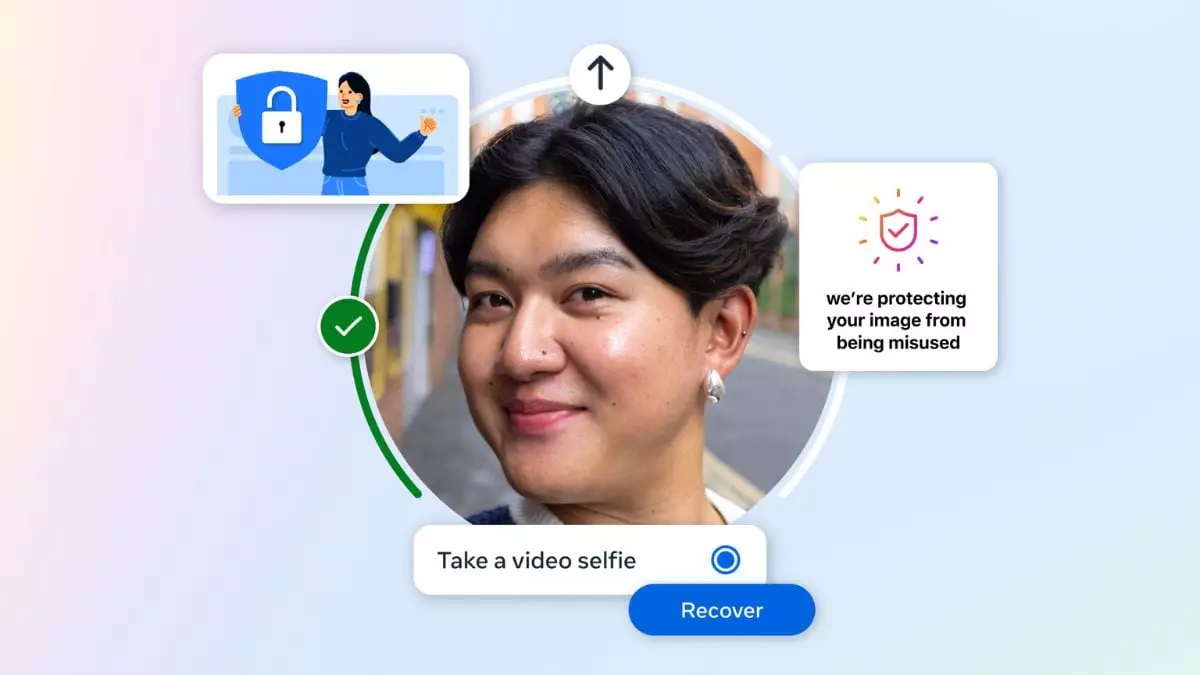In an era where social media platforms can significantly influence the lives of millions, the rise of online scams has posed serious threats to users. One of the most insidious forms of these scams involves “celeb-bait” advertisements. Meta, the parent company of Facebook and Instagram, has recently announced the testing of innovative facial recognition technology to combat these fraudulent activities, signaling a substantial shift in how digital security may be approached in the future.
“Celebrity-bait” scams utilize the allure of well-known individuals to ensnare unsuspecting users into clicking on fraudulent links, often leading to malicious websites or phishing attempts. Scammers ingeniously leverage the trust associated with public figures, duping users into believing that these ads are genuine. The implication of such tactics extends beyond monetary loss; they can compromise personal information, affecting users’ privacy and security deeply.
By recognizing and addressing this specific scam, Meta is not merely focusing on user protection but is also actively working to maintain the integrity and reliability of its platforms.
In response to the alarming trend of “celeb-bait” ads, Meta is incorporating facial recognition technology to enhance the detection process. This system works by comparing the faces in advertisements against images of public figures available on their verified social media profiles. If a fraudulent ad is identified, the platform will automatically block it. This proactive stance is a significant improvement over the previous reliance solely on automated ad review systems that analyze text, images, and video content.
The introduction of facial recognition technology aims to bolster the effectiveness of these reviews, speeding up the identification process and allowing for a more comprehensive battle against scams. By implementing such measures, Meta aims to establish a safer user environment and effectively combat the proliferation of malicious content.
As Meta embarks on this initiative, it is crucial to acknowledge the ethical implications tied to facial recognition technology. In the initial testing phase, Meta has selected a small group of celebrities and public figures to evaluate the technology’s performance and impact on user experience. Ensuring that these individuals are well-informed and have the opportunity to opt-out through the Account Centre reflects an essential approach to maintaining user autonomy and trust.
Moreover, Meta claims that it will not retain any facial data after the verification process, emphasizing its commitment to user privacy. The balance between enhancing security measures and protecting users’ personal information is a delicate one, and the success of this initiative will hinge on the company’s ability to navigate this terrain carefully.
Quick Account Recovery via Video Selfies
Another pivotal aspect of Meta’s recent rollout centers around account security, particularly concerning account recovery. Users frequently find themselves locked out of their accounts due to suspicious activity or forgotten passwords. Historically, recovering access required verification through government-issued identification. Meta’s innovation involves allowing users to submit video selfies for identification verification, streamlining the recovery process.
By adopting this method, Meta harnesses the power of facial recognition to reduce the cumbersome nature of account recovery, aiming for a smoother and quicker process for users entangled in these scenarios. This advancement not only enhances user experience but also fortifies security protocols.
As Meta tests these new technologies, the overarching goal remains clear: to create a safer online environment for users while mitigating the risks associated with online scams and identity theft. The company’s initiatives represent a significant step toward establishing an effective framework for digital security that resonates with the trust users place in social media platforms.
In pursuing these innovations, Meta is not only addressing existing threats but also paving the way for future advancements in online safety. With the potential to significantly reduce scams and enhance user experience, Meta’s commitment to exploring facial recognition technology exemplifies a forward-thinking approach in the realm of digital security. As these developments unfold, users will be watching closely, hopeful for a more secure and trustworthy online experience.


Leave a Reply